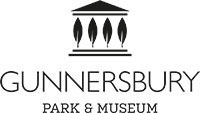In this blog series, we'll be interviewing some familiar faces around Gunnersbury. Next up is David Babington-Smith, Chairman of our Board of Directors.
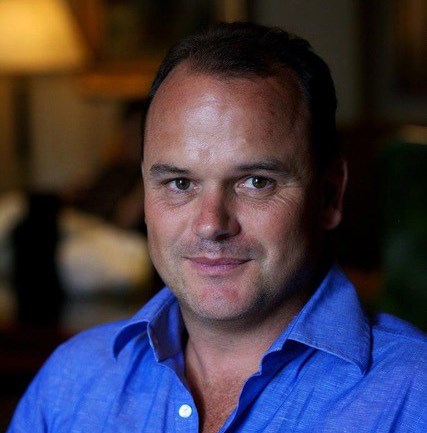
From building thousands of homes in Malawi to launching an e-learning company that was acquired by Oxford University Press, David Babington-Smith’s career has been both varied and impressive. He’s now Chairman of the Community Interest Company (CIC) which runs Gunnersbury, a job that he does #fortheloveofgunnersbury
Tell us a bit more about building homes in Malawi
I come from a military family where travel was an integral part of life. I was born in Scotland and went on to live in Singapore and Germany. The rest of my childhood was spent in Cambridge, where I also went to university.
When I graduated, I still had the travel bug and so I went to Africa, principally to work for a Non-Governmental Organisation (NGO). I eventually spent about five years there.
The NGO I worked for built affordable housing in Malawi. It was a really exciting time. When I arrived, it was completing about 30 homes a year. I was very fortunate, within 18 months an extraordinarily successful fundraising drive led to big growth and new opportunities, and at the age of 23 I was appointed director for the whole country. Part of my vision was to grow the organisation to an output of 1,000 houses a year. It was incredibly ambitious, but working together as a team we’d achieved it within just three years.
What was the appeal of working for an NGO?
I’d been in the classroom for 18 years and was desperate to get out and do something practical with my hands. I also wanted to go somewhere warm and tropical. NGOs uniquely provide an opportunity for adventure and practical work in some of the most exotic parts of the world. The work itself was deeply rewarding; designing a house and then seeing it built quickly in front of your own eyes. Also sharing in the excitement as families who previously lived in substandard and poverty housing, taking ownership of a beautiful new home – often planting trees and flowers in the front garden, putting in place small picket fences or boundary hedges; immediate pride, beauty and joy
But then you moved on from the NGO world?
Yes, I felt that NGOs often had grand ambitions about how they were going to change the world but many of them didn’t achieve that goal. Their challenge was scaling up operations. Grant funding on its own is never enough. In Malawi I started working with large corporations who wanted us to create housing schemes for their low-income staff. They had a passion for excellence and helping the poor that was absolutely the equal of the NGO world. But they also had the resources to make it happen. I realised that if you can find a way of raising sufficient commercial finance and you have a vision, then anything is possible. That realisation changed my outlook and so I decided to go to Business School to learn how to run a business properly.
What was the appeal of business school?
I chose Imperial College Business School because they had a strong reputation for entrepreneurship. They actively helped students and faculty set up their own businesses and I figured they could help me find a business opportunity too. Eventually one of my lecturers introduced me to the head of e-learning at the Business School and we set up an e-learning business together called Epigeum. Our niche was online skills training for students and lecturers. We built the company up over 10 years and became the global market leader in our field. In 2015 we sold the company to Oxford University Press and, at the same time, I moved to Ealing.
So, you’re a local resident – how did you get involved in Gunnersbury?
I used to drive past the park on the North Circular road and see the tops of the semi-derelict old stable blocks, surrounded by scaffolding. They seemed so forlorn. I kept thinking I’d love to give something back to the community like helping to write a business plan for their restoration. So, in late 2019, I popped a note in the suggestion box in the museum saying: ‘I’m a local business person with some time on my hands – do you need any help developing a business plan to raise money to restore the stables?’
A couple of days later I got an email from David Bowler, the CEO of the CIC. He invited me to apply to become a Board director and then to consider putting myself forward to be selected as Chair, which I did.
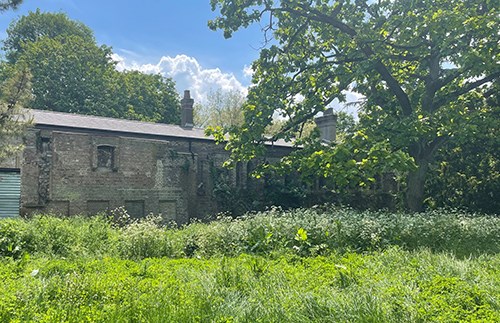
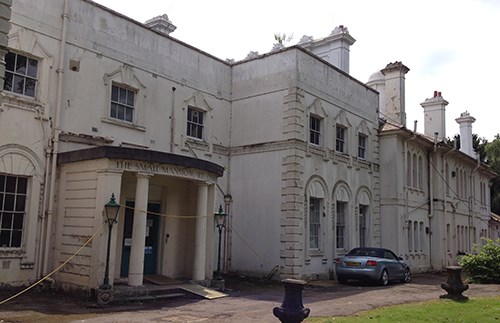
Can you tell us a bit more about the CIC, the Community Interest Company?
Yes, a CIC is essentially a limited company that exists to benefit the community rather than its shareholders. The Gunnersbury Estate (2026) Community Interest Company is jointly owned by Ealing and Hounslow councils, and it was established to run the park and the museum on their behalf. The two boroughs have the power to nominate one Lead Director each to the CIC in addition to five independent directors who are also local residents. The CIC reports to both boroughs’ cabinets through their respective Lead Members.
What’s the benefit of this arrangement?
By allowing Gunnersbury to have its own CIC, it means the park enjoys the benefit of a wholly committed senior management team and board of directors. The directors, by law, (even if they are council appointees), have to place the interests of the park above any other conflicting interests. A highly experienced management team and board will invariably bring more energy, connections and focus, than a department of another organisation which, however well-meaning, will have a thousand other calls on its time and resources.
How is the community voice really heard?
For a start all the independent CIC Directors are local residents. Nonetheless, finding out what the wider community wants from Gunnersbury is a vital ongoing process. Two years ago we began ‘Big Conversation’ workshops with residents to get regular feedback on key aspects of our work. This process is now being deepened significantly into our new Business Plan and Master Plan consultations.
The two places might be thousands of miles apart but is there any comparison between what you’re doing at Gunnersbury and what you achieved in Malawi?
Yes, there is. The key in both situations is vision. If you can rally people around a strong vision, then things really start to happen, and you can achieve something really amazing. That’s what happened in Malawi – we came up with a powerful, simple vision and that’s why we grew quickly. We’re working on that vision for Gunnersbury at the moment. As the estate agents say, Gunnersbury currently offers an exciting ‘opportunity’. Everyone is aware that it is partly restored and there is still much work to do. We want to create a thrilling vision of where the park and museum will be in five to ten years time. We want a wow factor, and we want to bring the whole community along with us.
It’s a challenge because we’ve got a lot of stakeholders who, quite understandably, have their own priorities. The CIC also needs to keep a firm eye on the running costs. Heritage estates require significant investment and Gunnersbury has been under-resourced for years. Our ‘catch-up’ likely capital repair budget is still in the tens of millions, and if we are to properly maintain the estate for future generations, as well as grow our public offerings in the museum, gardens and sports, we need to significantly grow income. There are no grounds for complacency. Nevertheless, the wonderful thing about Gunnersbury is that there’s so much going on here – you’ve got the sports centre and the museum and then there’s the wildlife and horticulture, as well as the Park Run and weekend markets.
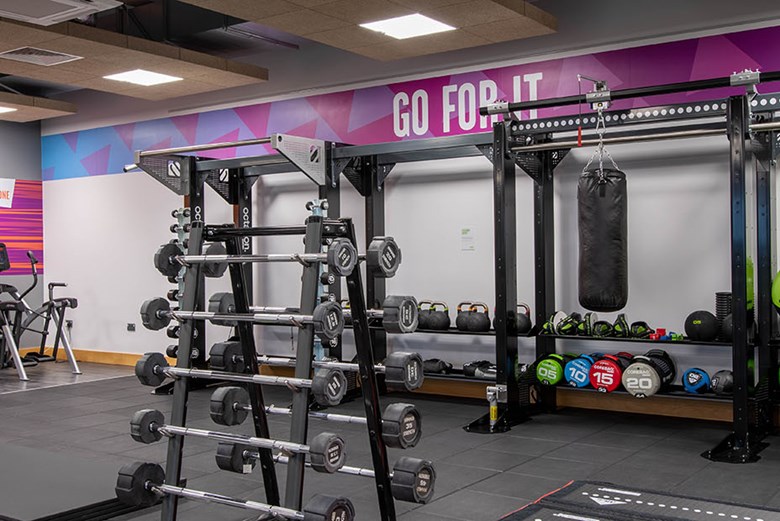
You haven’t been in the job long and the CIC has only just got started but what would you point to as the successes so far?
I’ve been Chair for just under two years now. Clearly COVID has been a defining event and has cut a swathe through all manner of initiatives. In the last financial year for example, we suffered a catastrophic fire at Benugos and lost virtually all our other commercial revenue (events, weddings, rentals). Many of our staff went home on enforced furlough. So much of the time has been fire-fighting.
The CIC staff responded heroically. Fiscally, we took immediate fiscal action to address the catastrophic loss in income. Then, with additional support from Hounslow Council, and emergency funding appeals (including from the community and a very generous grant from the Culture Recovery Fund) we actually managed, miraculously, to end the year with a modest surplus. No staff were let go. The park was kept open, significant new planting done and the museum has run some superb virtual events. Throughout COVID therefore, we not only kept the park open but also saw daily visitor numbers growing to record highs. Now that things are opening up again we’re beginning to rebuild some of our all-important commercial income with a slow, but steady pick up in wedding bookings, and some new events in the park such as the Waterworks music festival. We are also having some real success in marketing Gunnersbury as a film location. Right now we have a large production filming in the museum. It features some major TV and movie stars from the UK and the US. I can’t say who they are, but all will be revealed soon.
What is the next big thing to expect?
Quite a lot! £2m has been raised for emergency repairs to the Small Mansion and Stables - people will be seeing scaffolding going up for this right now – and a stakeholder group is busy drawing up plans for their complete restoration. The Benugos café is being rebuilt. Gunnersbury Park Sports Hub has just opened. Following the end of lock-down, we also expect to see many more markets, events and catering offerings coming soon. The park and museum teams also continue to expand their activities.
In addition to the CIC’s own long-term vision there is also a major revision of the estate Masterplan. It’s looking to address all the remaining areas of disrepair; the Model Farm area, the Potomac, crumbling paths, broken gates, as well as the woeful lack of facilities (like public toilets) and the fact that our gardening team has just one tiny greenhouse to service 180 acres!
What can we as visitors to the park do to help?
There are plenty of opportunities to volunteer and we desperately need help. We’ve got a Volunteer Manager, Gill Clement, who can help you to find a placement that I’m sure you’ll find rewarding. In addition to being on the board I do extra volunteer work myself. Each summer you will see me working in the gardens, sleeves rolled up, with Chris Ellis and our gardening team. The more people who can get involved the better it is for the park.
Generally, I’d say: tell your friends. When I mention to people that I’m involved with Gunnersbury they often say:
‘What’s that? A tube station?!’
So many people are unaware of Gunnersbury’s existence but during lockdown it’s been an oasis for so many of us. Most importantly, we want everyone in the community to feel that it’s their park and it’s there for them – whether they go for a run here, walk their dogs, enjoy a Sunday afternoon, visit the museum or become one of our growing army of wonderful volunteers.
